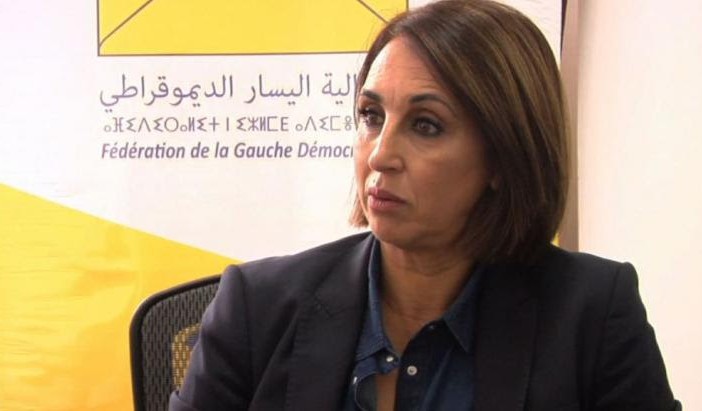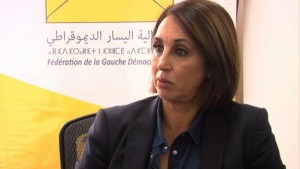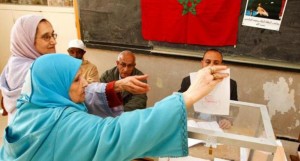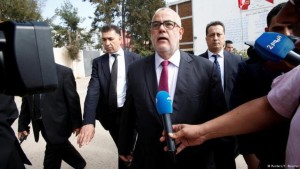Qantara.de
The key reason for the failure of the Federation of the Democratic Left in Morocco′s elections in October was campaign mismanagement, writes Moroccan journalist Imad Stitou
The Federation of the Democratic Left (FGD) – a coalition of three left–wing parties, the Socialist Democratic Vanguard Party (PADS), the National Ittihadi Congress (CNI) and the United Socialist Party (PSU), three small left-wing parties – emerged from Morocco′s elections on 7 October with only two of parliament′s 395 seats.
This was a disappointing outcome for the newly formed coalition, which had been hoping to create a viable alternative in a Moroccan political scene sharply divided between the conservative Justice and Development Party (PJD) and the pro-monarchy Party of Authenticity and Modernity (PAM).
Even though the FGD had found substantial support among intellectuals and academics and on social media, offering hope to left-wingers who were growing disillusioned by the prolonged crises within the traditional left-wing parties – including the Socialist Union of Popular Forces and the Party of Progress and Socialism – this momentum failed to translate into votes on election day. Instead of gaining a key role within the legislature, the FGD is a fringe movement with little sway.
Great expectations
The FGD′s electoral setback shows that its leaders had been overly optimistic in their ambitions, which they declared involved creating a parliamentary group – a pipedream for such a nascent political power. The disproportionate attention the media bestowed on the FGD′s leaders further inflated their illusions. For example, the head of the PSU, Nabila Mounib, received considerable media coverage – competing with Abdelilah Benkirane and Ilyas El Omari, the leaders of PJD and PAM respectively – which misled observers into thinking the FGD was the third most influential political grouping in Morocco. Furthermore, the FGD touted unscientific polls, such as that by Telquel and TIZI-Averty, which claimed Mounib was Moroccans′ third most popular choice for prime minister.
However, the coalition′s inflated sense of its own power only played a minor role in the election setback. A more fundamental factor was the technical failure to coordinate campaigns between the FGD′s three parties. The three parties had coalesced in 2014 based on a shared ideology, not on an electoral platform or even agreement on issues. For the 2016 parliamentary election, the coalition chose to evenly distribute candidates for each parliamentary district among the three parties, rather than backing one shared candidate based on electability and strength in that district. This saddled the FGD with weak candidates in most cities.
Instead of campaigning as a team, the individual parties were each trying to secure the largest share of the nominations, which generated friction during the nominating process. According to inside sources, in several districts FGD members expressed their displeasure by declining to volunteer and campaign for candidates belonging to other FGD parties.
The FGD candidate from the CNI received a pitiful 140 votes in the Moulay Abdullah district, where representatives of their coalition member the PSU had garnered around 2,500 votes in the previous year′s municipal elections – suggesting the PSU failed to mobilise its supporters to back the FGD candidate this year. This makes it clear that the coalition has not effectively created the close coordination envisioned in its founding documents. CNI leader Abdeslam Laaziz expressed some of this tension when he suspended his membership in the FGD′s executive body after the elections, fuelling worries that the FGD would break up after having failed to overcome its narrow partisan interests in favour of a more cohesive coalition.
The myth of a ″third option″
The FGD entered the campaign calling itself the ″third option″, but this rhetoric was never backed by a detailed plan. Its election platform included quixotic promises such as building a solidarity economy, reworking delegated management contracts, revising the policy of economic liberalisation and reforming the constitution.
This made the ″third option″ based on constitutional reform seem like a fantasy out of touch with Morocco′s political reality. Furthermore, their failure to distinguish in how they have spoken about the two leading parties, the FGD unwittingly played along with the media-orchestrated PJD-PAM dichotomy.
In fact, they reinforced it and failed to win over the sizeable segment of voters who were turned off by the PAM, but leftist enough to be attracted to the FGD, effectively pushing them to vote for the PJD.
Rather than focus on the PJD′s record of pursuing socially neoliberal policies in government and failing to shift the balance of power away from the palace toward democratically elected institutions, the left-wing coalition spent much of its energy attacking the PJD′s Islamic roots and emphasising the ideological differences between the two.
This approach overlooked the fact that the Moroccan political context does not lend itself to ideological appeals – such as right versus left or conservative versus progressive – simply because no parliamentary faction can do much to implement an ideological platform as long as the preponderance of power remains in the palace′s hands.
Skewed rhetoric
The FGD leaders′ rhetoric in this regard had missed its mark. For example, during a televised panel discussion, Mounib accused the PJD of having ″transcontinental″ dreams of ″establishing a caliphate.″ This was a strategic mistake, implicitly if unintentionally borrowing from the PAM′s argument that the PJD is a local branch of the global Muslim Brotherhood organisation carrying out a foreign agenda.
The FGD could have won voters with a pointed critique of the PJD′s record in power, but by mimicking the PAM′s fear-mongering tactics, it lost the chance to create its own identity for voters – while also ignoring the inconvenient fact that the PJD has not actually taken any moves to restrict individual freedom or Islamicise the state.
The FGD leadership proved inept at exploiting the PJD′s awkward position of trying to work from within the system even as PJD leader Abdelilah Benkirane made the unprecedented admission that the democratically elected institutions in Morocco are kept on a tight leash by authoritarian forces that refuse to delegate even the limited powers theoretically granted by the ballot box.
Political obscurity
FGD rhetoric instead focused on attacking the linguistic connotations of the word tahakoum (control) Benkirane had used to describe the Moroccan deep state. The coalition stayed on the sideline in the broader debate over whether the deep state is impeding future democratisation, losing out on a chance to claim its own political ground and appeal to voters, especially those on the fence between voting for the PJD or the FGD.
Still, the modest outcome in the October parliamentary elections should not obscure the fact that the FGD has succeeded in making itself the leading left-wing power. Even in places where they failed to meet the threshold to take seats they still received more votes than the Socialist Union of Popular Forces.
This was the case in over ten large cities, including Casablanca, Tangiers and Oujda. This suggests the traditional left-wing voter base is turning towards the FGD and that a key segment of urban voters are looking for outsiders untainted by time in power. This could explain the FGD′s strength in the districts of Anfa in Casablanca and al-Mouhit in Rabat (the districts where it picked up its two seats and finished third locally behind the PJD and PAM).
Despite all the mistakes the FGD made in its election campaign, its weakness runs deeper than just campaign mismanagement. Each of its component parties have their own structural handicaps – such as organisational problems, aging leaders, the inability to generate a new elite and heavy bureaucracy – and have struggled to keep pace with the far-reaching transformations in Moroccan society.
Imad Stitou
© Carnegie Endowment for International Peace 2016










